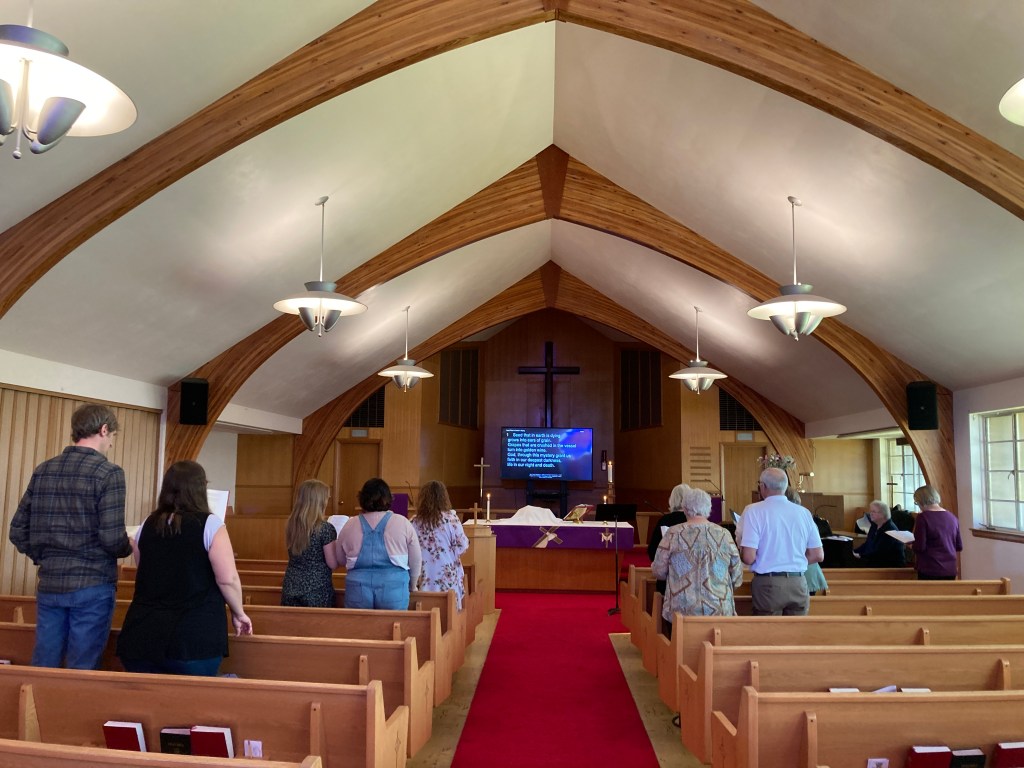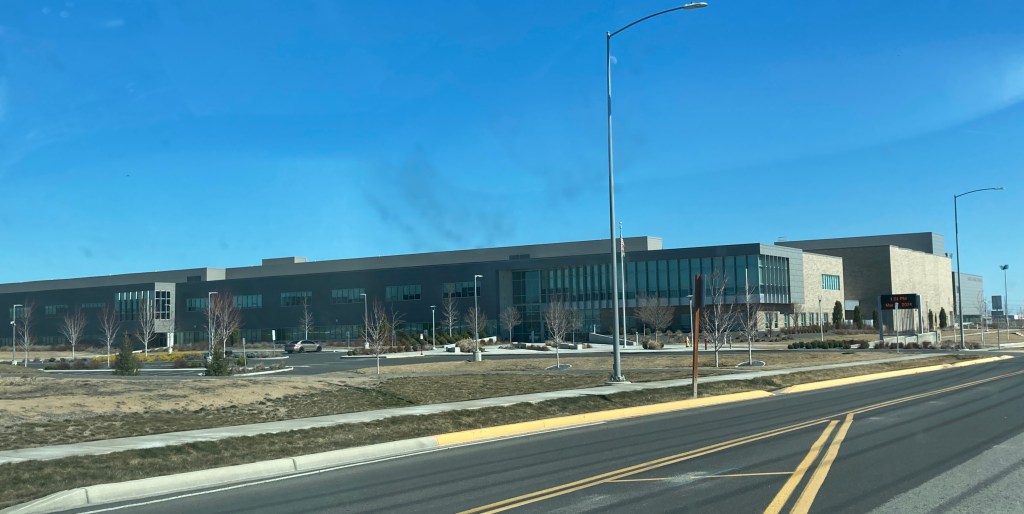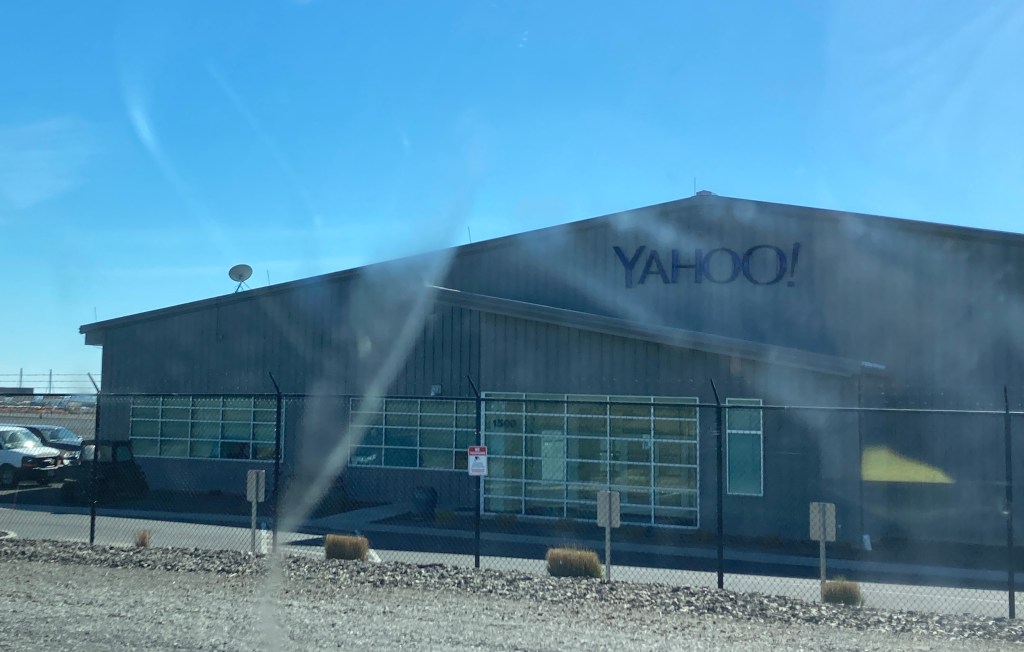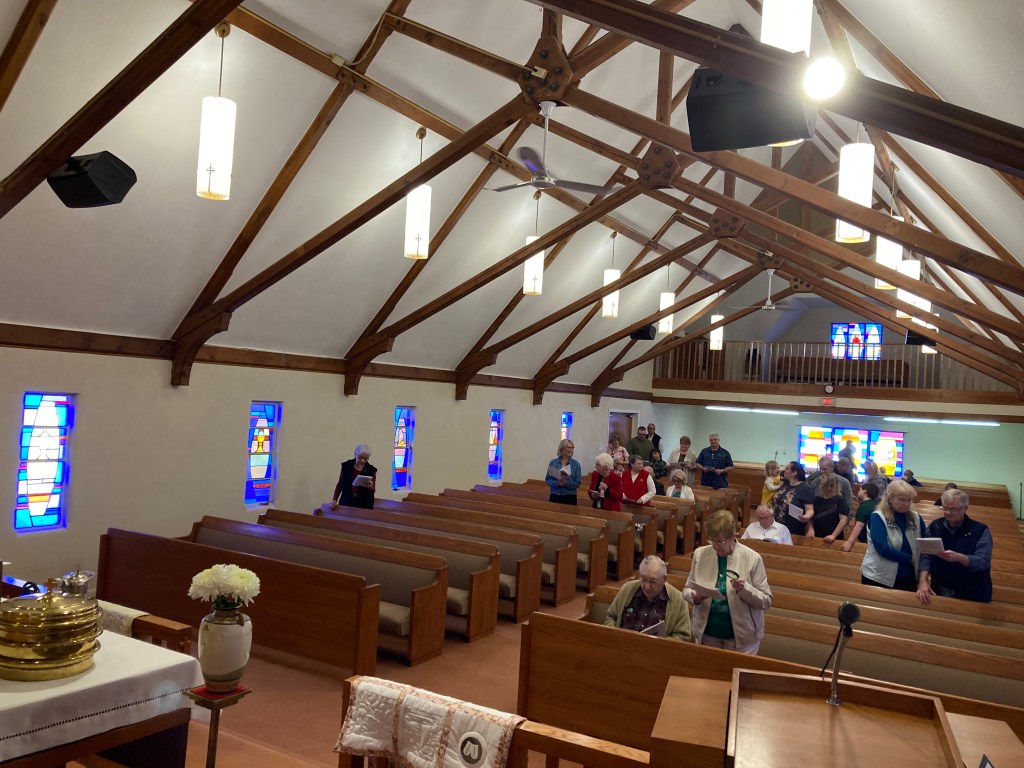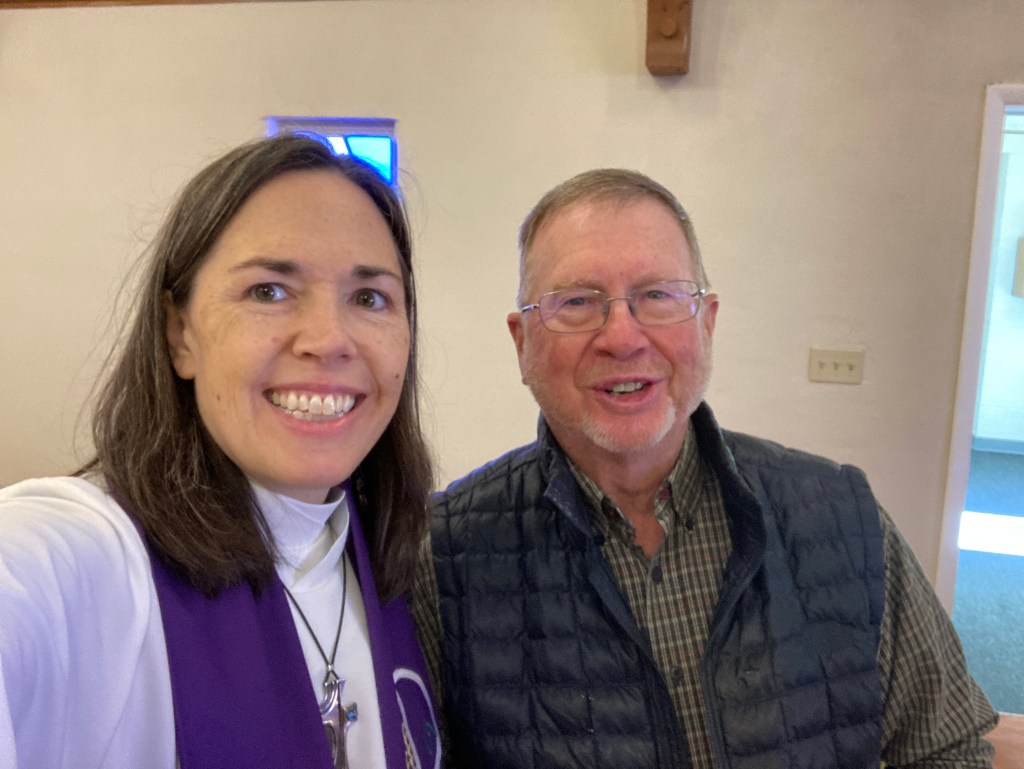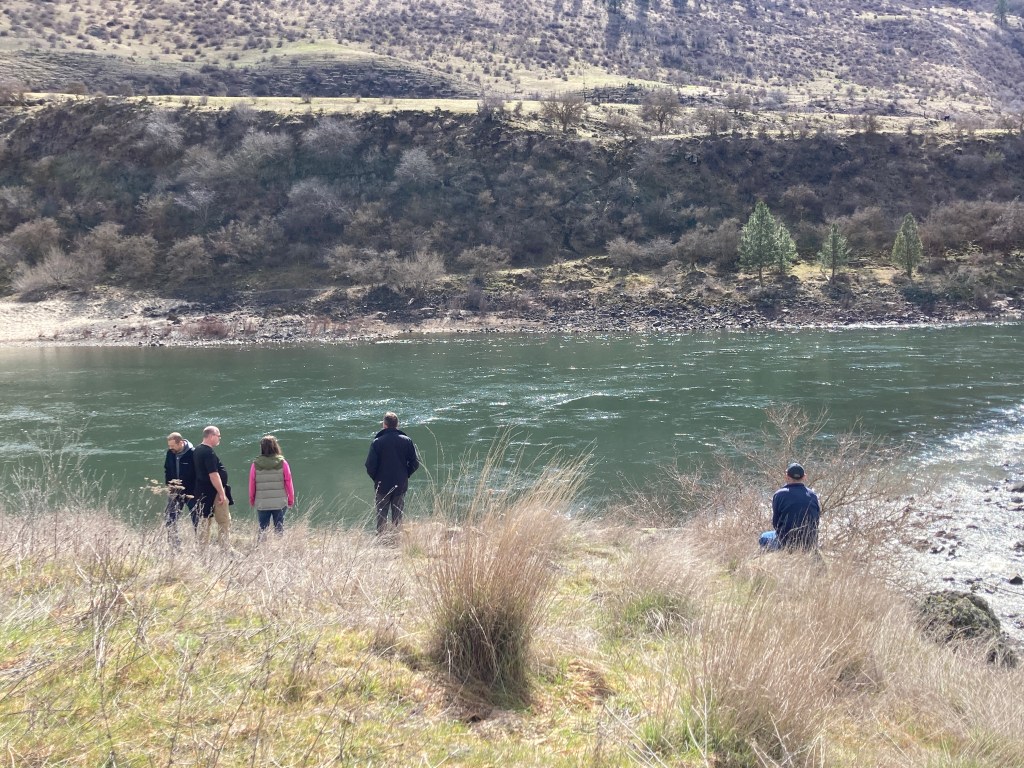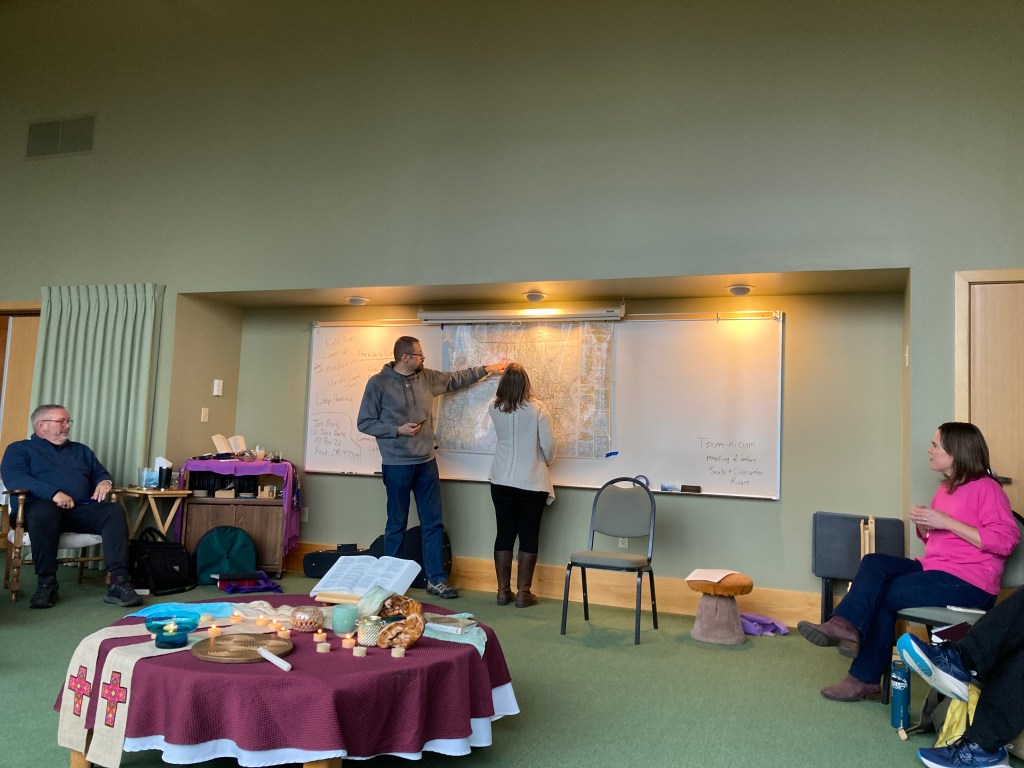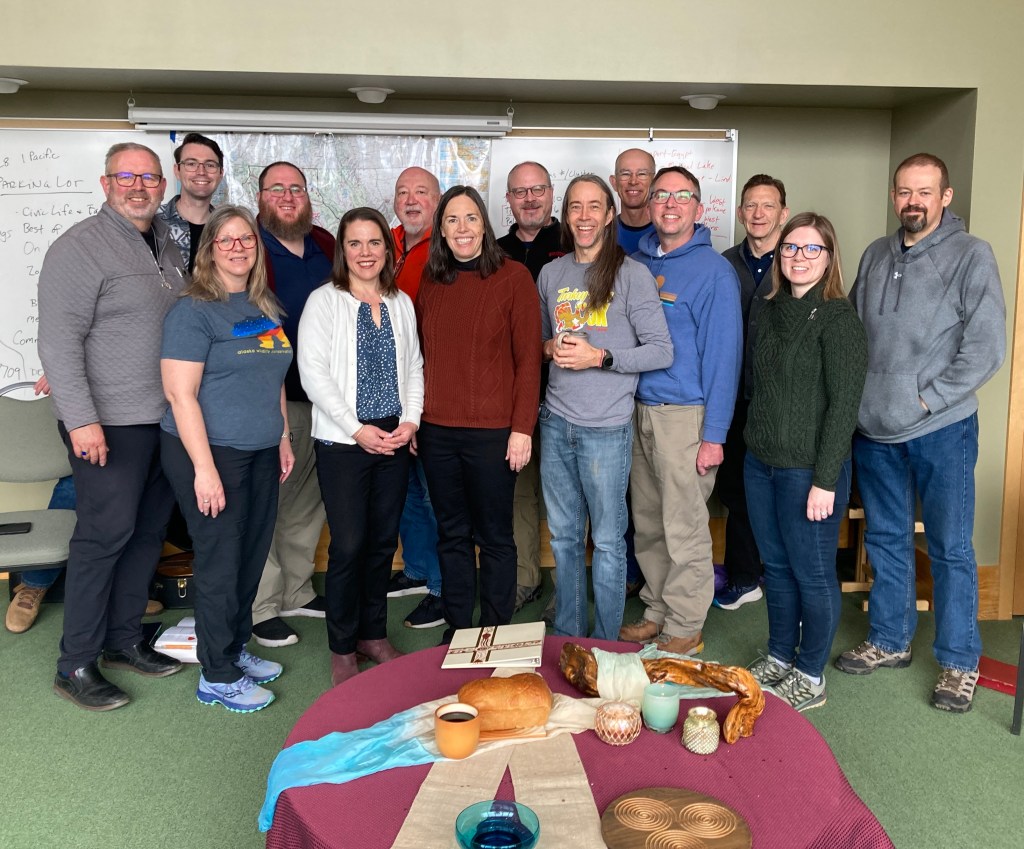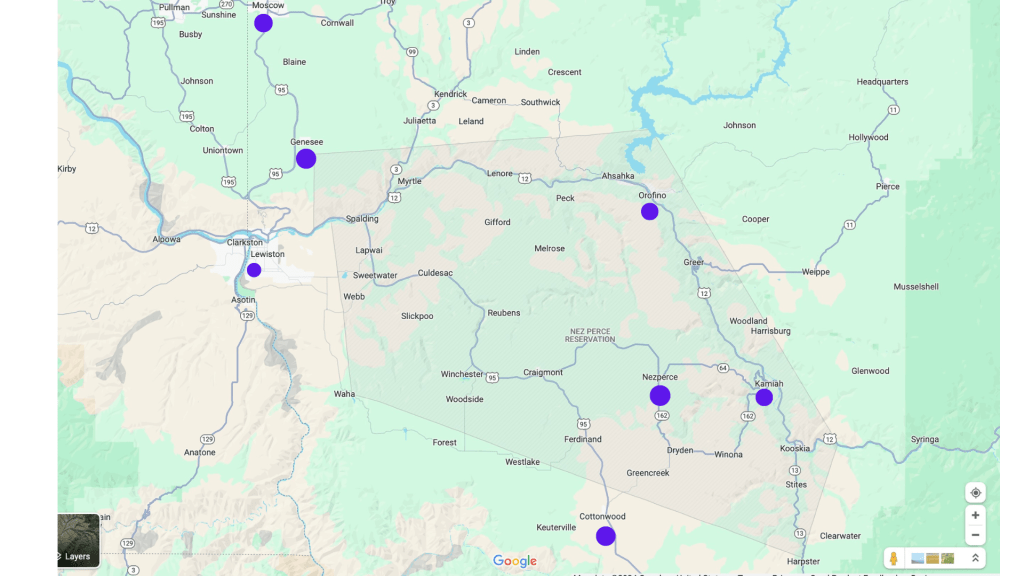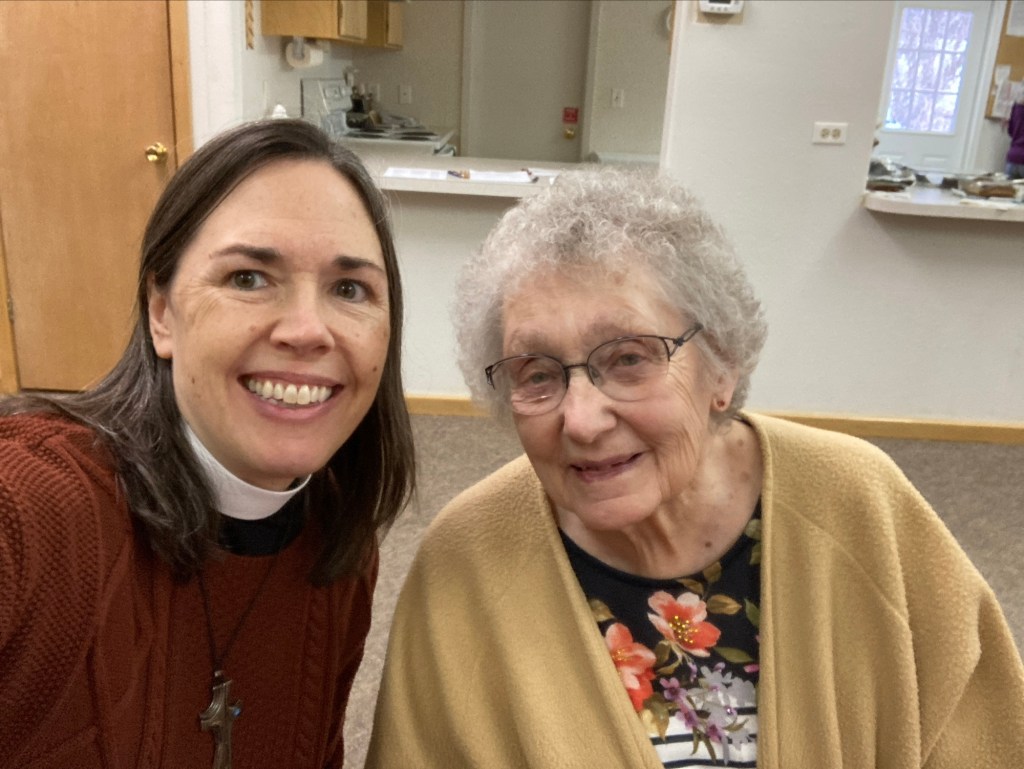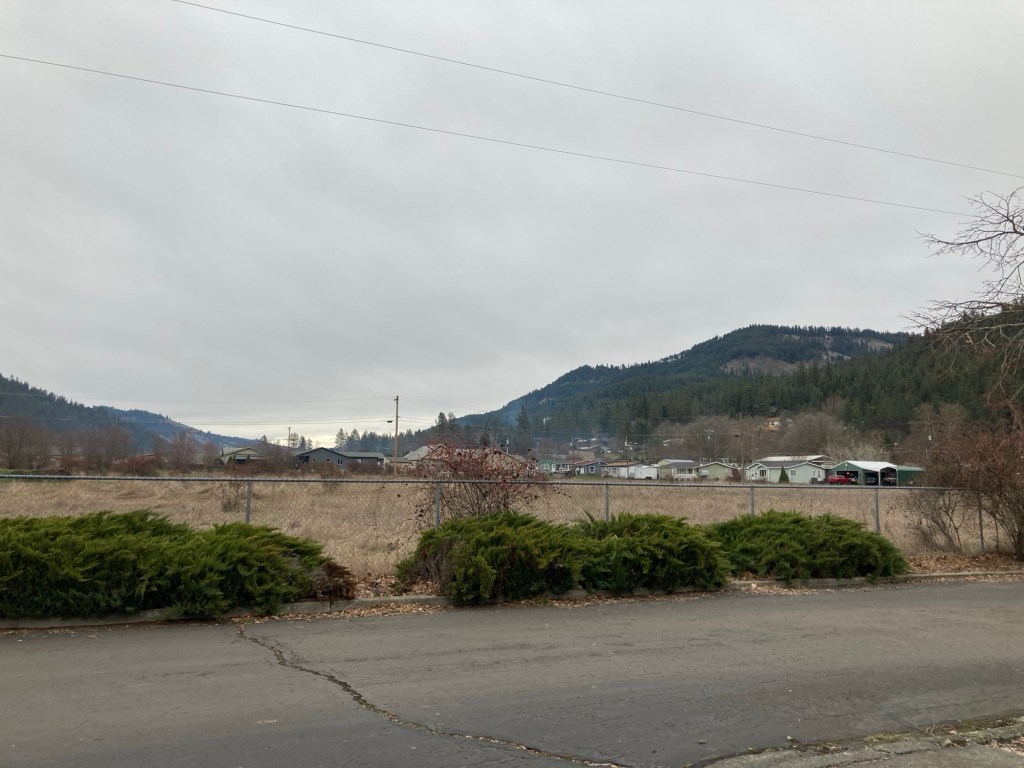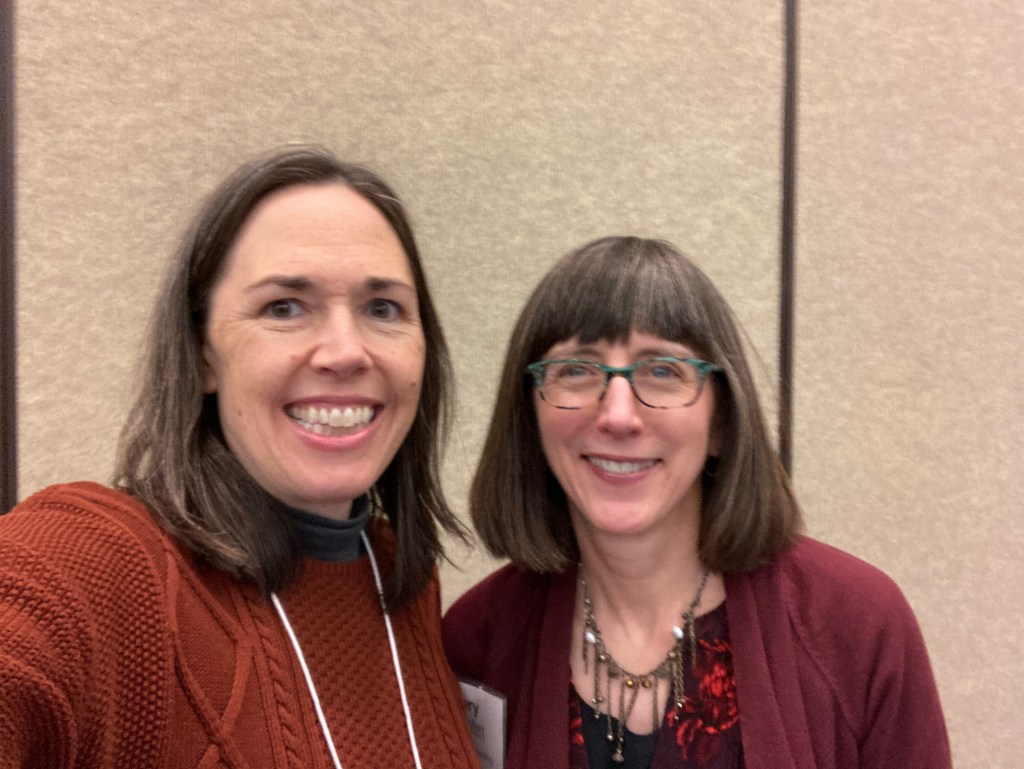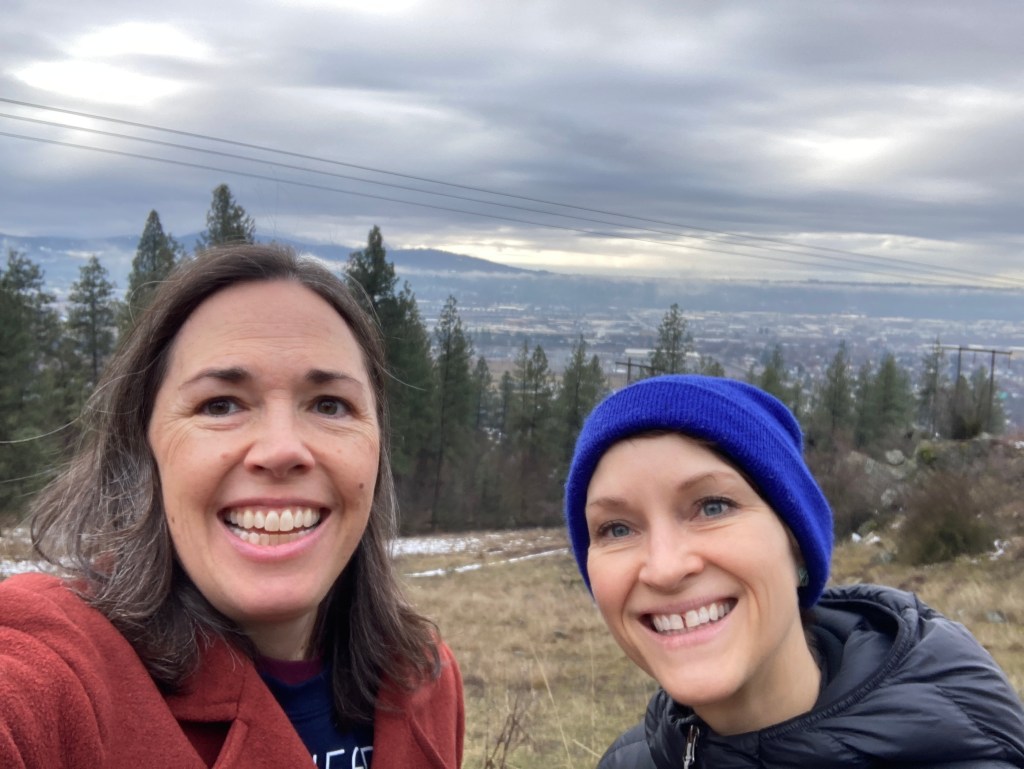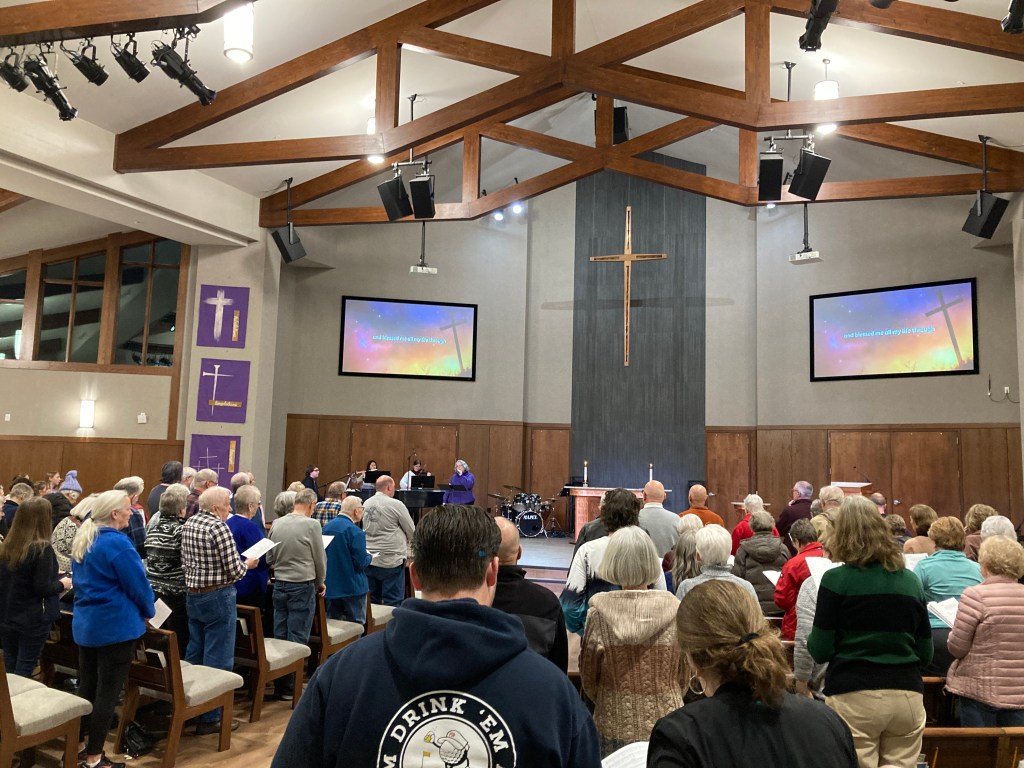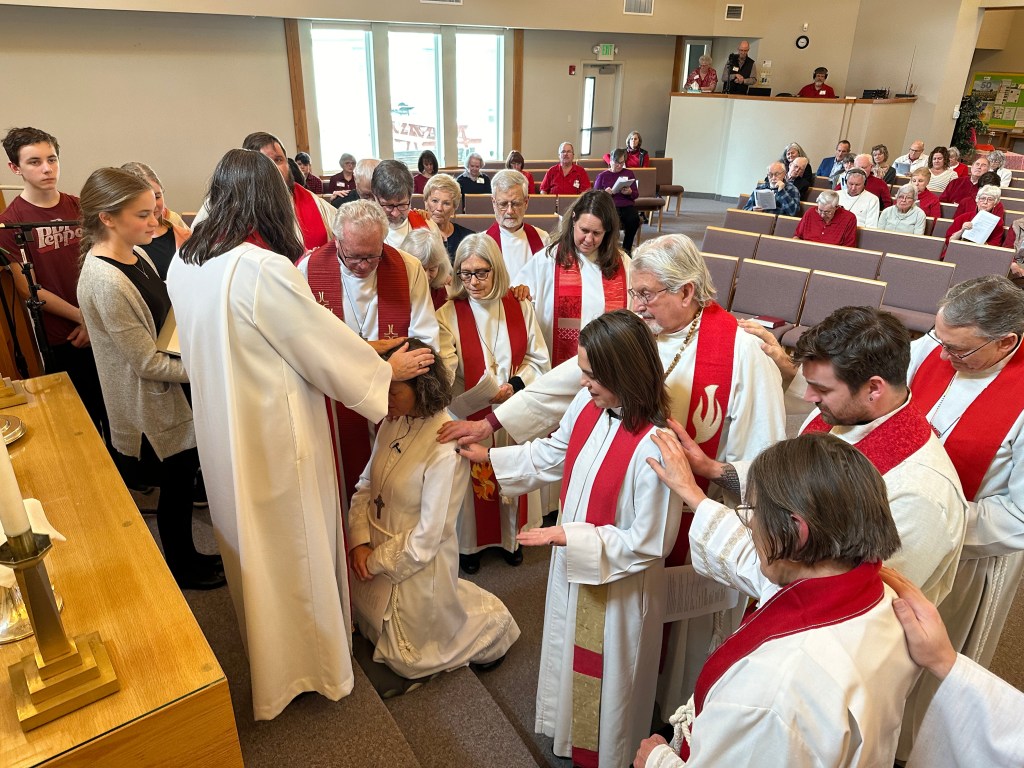Trinity, Pullman – Feb. 18, 2024
Mark 10:17-31 (Narrative Lectionary)
17As he was setting out on a journey, a man ran up and knelt before him, and asked him, “Good Teacher, what must I do to inherit eternal life?”18Jesus said to him, “Why do you call me good? No one is good but God alone. 19You know the commandments: ‘You shall not murder; You shall not commit adultery; You shall not steal; You shall not bear false witness; You shall not defraud; Honor your father and mother.’” 20He said to him, “Teacher, I have kept all these since my youth.” 21Jesus, looking at him, loved him and said, “You lack one thing; go, sell what you own, and give the money to the poor, and you will have treasure in heaven; then come, follow me.” 22When he heard this, he was shocked and went away grieving, for he had many possessions.
23Then Jesus looked around and said to his disciples, “How hard it will be for those who have wealth to enter the kingdom of God!” 24And the disciples were perplexed at these words. But Jesus said to them again, “Children, how hard it is to enter the kingdom of God! 25It is easier for a camel to go through the eye of a needle than for someone who is rich to enter the kingdom of God.” 26They were greatly astounded and said to one another, “Then who can be saved?” 27Jesus looked at them and said, “For mortals it is impossible, but not for God; for God all things are possible.”
28Peter began to say to him, “Look, we have left everything and followed you.” 29Jesus said, “Truly I tell you, there is no one who has left house or brothers or sisters or mother or father or children or fields, for my sake and for the sake of the good news, 30who will not receive a hundredfold now in this age—houses, brothers and sisters, mothers and children, and fields with persecutions—and in the age to come eternal life. 31But many who are first will be last, and the last will be first.”
Invite the bishop to guest preach and give her the scripture passage on wealth. I hope a force field did not go up when I was reading the passage. And yet, we know that this is not the only time Jesus teaches about wealth and the Bible has plenty to say about money.
I actually think about money and resources a lot in this new call, similar to when I was in the parish but also differently. What good is the middle judicatory for, I get asked in ecumenical and ELCA circles? Should we close up shop and give our resources to the congregations who are in actual communities? That’s not going to happen, but scripture passages like this one make me ask those questions.
Driving around the Treasure Valley of Southwest Idaho, I read this scripture passage through my front windshield view and the abundance of storage units that seem to be everywhere. Could First Century Palestinian Jews even imagine the amount of stuff we own in the United States? I know there are good reasons for a few choice citizens to have storage units, but it is so far out of hand. It’s not just the stuff itself, it’s the real estate that the storage units take up, which could be used for housing.
And even if we have a storage unit full of stuff, we might still feel like we do not have enough, right? We need to upgrade our stuff. We need to replace it. Or maybe you’re a minimalist when it comes to stuff, but you want to make sure your financial portfolio has enough. What is enough? This when ELCA World Hunger reports that according to the most recent estimates, 736 million people live in extreme poverty on less than $1.90 per day. That’s 10% of the world’s population. (World Bank, 2018). 39.7 million Americans were living in poverty in 2017. For a family of four, this means their annual household income was below $25,094.
So, I’ve always thought it was significant that Jesus didn’t say, get all your money together and have a bonfire and burn all of your wealth. Instead, Jesus says, “You lack one thing; go, sell what you own, and give the money to the poor, and you will have treasure in heaven.” Jesus asks the man to redistribute his wealth. He knows the scriptures that we call the Old Testament. There we read over and over God’s preferential treatment for the poor, specifically the orphan, the widow, and the foreigner.
The disciples are perplexed and at Jesus’ words. Jesus does not add nuance or caveats. Instead, he seems to double down. It is easier for a camel to go through the eye of a needle than for someone who is rich to enter the kingdom of God. The disciples have presumably already done what Jesus asks the rich young man to do. Peter says as much, “Look, we have let everything and followed you.”
Jesus said, “Truly I tell you, there is no one what has left house or brothers or sisters or mother or father or children or fields, for my sake and for the sake of the good news, who will not receive a hundredfold now in this age—houses, brothers and sisters, mothers and children, and fields, with persecutions—and in the age to come eternal life.” The lists Jesus speaks are mostly identical except that the second list includes those persecutions.
It’s not pleasant to do self-reflection on a text like this one. My income is greater, and not just because of inflation, than the first time I preached on this text in 2006. Do I give more away? Yes, but not as much as I could. It’s not that I should not have savings for a rainy day or a retirement, something that became real this year when I had to suddenly replace my furnace. It’s that wealth today, as with the rich young man, can seem to fill the place that only God can fill.
In some ways, I wonder if Jesus gave this teaching today if he would talk about time instead of wealth. Thursday and Friday I was a theological conference in Nampa at the Nazarene University. The speaker was Dr. Andy Root who teaches at Luther Seminary. I love when Root does a review of history in his books or lecture because it reminds me about the impacts of the Industrial and Technological Revolutions. Efficiency is a hallmark of both. The natural result of more efficiency would be more time, right?
Email came along right as I entered college. I have no way to compare my life with a bishop who never had email, but I don’t think I have more time because I use email instead of the US postal service. I don’t know that I have less time either. I know that I have access to more information. Instead of just reading information, I have to spend time sifting information.
I have to spend time sifting through information for my job, but we all have to sift through information as citizens of this country and of the planet. We are way past the problem of too much information which the 24-hours news cycle brought. Now the issue is 100s of news sources and platforms on my devices screaming for my attention. And I know that I don’t want to be in a silo, I don’t want to be biased, so to be make sure my news is coming from multiple sources, I have to subscribe or check multiple sources. And then I have to analyze and weigh them.
Then I remind myself that my news is too local or too national. I really should be more aware of what’s happening on the other side of the planet. There again, which news source is most trustworthy? Well, I better read another take just to be sure. Do I really know more? Am I more informed? And now, because I’m more informed, I’m behind on my email inbox. Is that all bringing in the reign of God more faithfully? I honestly don’t know.
All of this is to say that if Jesus came and talked with us today, I wonder if he would point to how we spend our time as much as how we spend our money? Because I think we have a problem with both. Our need for wealth or stuff and our continued business and intake of information do not in the end fill us up. In the midst of both, it takes intentionality to connect with the divine. And so, thank goodness Christians along the way left us with the Season of Lent.
On Ash Wednesday we began the Great 40-day Fast. We remembered our mortality, confessed our sins, and began to walk the way of the cross, contemplating the mysteries of death and life.
During Lent we contend against evil and resist whatever leads us away from love of God and neighbor. Each of us is invited to the discipline of Lent: fasting, prayer, and generosity.
There has been a move in recent years, to make sure we pastors emphasized that people could take something up for Lent instead of giving something up. That was probably a good corrective to previous chapters of the Church’s life. I am totally for more prayer, more worship, more silence, more offerings for special causes, and more caring for our neighbors. But I also think that to make room for these, we sometimes need to give things up. And fasting is lifted up again and again in scripture. I have several colleagues who gave up social media this year. Others give up a coffee shop habit. One of my roommates years ago fasted each Friday of Lent.
Whatever discipline of Lent you chose or choose, I hope it ultimately gives you more space for deeper connections with other human beings, be they old friends, a stranger, a neighbor, or a relative, and ultimately a deeper connection with the God who loves you. Did you catch that other detail in our reading today? We read, “Jesus, looking at him, loved him and said.” He loved him. He loved him and with that love told him all he needed to do.
At the end of the passage Jesus assures his disciples, “For mortals it is impossible, but not for God; for God all things are possible.” Another colleague of mine has reminded me that this story is somewhat open ended. She holds out hope for the rich young man. Jesus certainly did.
The hope for each of us during this 40 day fast is to clear some things away, almost as if planting a garden. Whatever stuff, physical or mental, is getting in the way of our faith, we are asked to clear it away. The disciplines of fasting, prayer, and generosity can help with this. We do this not because we fear an angry God who wants to punish us. People can be freed from whatever is binding them, but it takes a change of heart and a kind of discipline. We are not called to live irresponsibly, but to learn how to give ourselves away for the sake of those who need it. We are called to faith and faithful living, but we can never do it along. But with God all things are possible. Amen.

